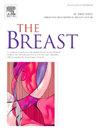提高对酒精作为乳腺癌可改变危险因素的认识:一项比较访问交互式网站和非交互式网站效果的随机对照试验。
IF 5.7
2区 医学
Q1 OBSTETRICS & GYNECOLOGY
引用次数: 0
摘要
背景:饮酒是乳腺癌(BC)的一个潜在可改变的危险因素。在酒精相关后果低风险(每日酒精阈值)的情况下,减少每日饮酒量可能有助于预防BC新病例。然而,大多数女性不知道BC的危险因素、每日酒精阈值以及如何测量酒精使用。我们的目的是调查访问互动网站在增加酒精是不列颠哥伦比亚省危险因素的知识方面的功效。方法:我们在等待乳房x光检查的妇女中进行了一项随机对照试验。女性在访问互动式(干预组)和非互动式(对照组)网站前后完成了一份调查问卷。结果:我们招募了671名女性,随机分为干预组329名(49.0%)和对照组342名(51.0%)。在基线时,大多数妇女不知道大多数可改变的BC危险因素。访问任何一个网站都显著增加了获得BC危险因素知识的女性比例,互动网站取得了更好的结果:干预组和对照组中分别有82%和69%的女性获得了酒精是BC危险因素的知识(p)。我们的研究结果表明,访问互动网站可能会增加女性了解酒精是不列颠哥伦比亚省风险因素的比例,特别是在受教育程度较低的女性中。本文章由计算机程序翻译,如有差异,请以英文原文为准。
Raising awareness of alcohol as a modifiable risk factor for breast cancer: A randomized controlled trial comparing the efficacy of accessing an interactive website with a non-interactive website
Background
Alcohol consumption is a potentially modifiable risk factor for breast cancer (BC). Reducing alcohol consumption within the daily amount at low-risk for alcohol-related consequences (daily alcohol threshold) may contribute to preventing BC new cases. However, most women are unaware of risk factors for BC, the daily alcohol threshold, and how to measure alcohol use. We aimed at investigating the efficacy of accessing an interactive website in increasing the knowledge that alcohol is a BC risk factor.
Methods
We conducted a randomized controlled trial among women waiting for mammography. Women completed a questionnaire to investigate their knowledge before and after accessing an interactive (intervention group) and non-interactive (control group) website.
Results
We recruited 671 women, randomized 329 (49.0 %) and 342 (51.0 %) to the intervention and control groups, respectively. At baseline, most women were not aware of most modifiable BC risk factors. Accessing either website significantly increased the percentage of women who acquired the knowledge on BC risk factors, with the interactive website achieving better results: 82 % and 69 % of women acquired the knowledge that alcohol is a risk factor for BC in the intervention and control groups, respectively (p < 0.001). Among women with lower levels of education, the probability of acquiring this knowledge was higher in the intervention group than control group.
Conclusion
Our results show that accessing an interactive website may increase the percentage of women who acquire the knowledge that alcohol is a BC risk factor especially among women of lower levels of education.
求助全文
通过发布文献求助,成功后即可免费获取论文全文。
去求助
来源期刊

Breast
医学-妇产科学
CiteScore
8.70
自引率
2.60%
发文量
165
审稿时长
59 days
期刊介绍:
The Breast is an international, multidisciplinary journal for researchers and clinicians, which focuses on translational and clinical research for the advancement of breast cancer prevention, diagnosis and treatment of all stages.
 求助内容:
求助内容: 应助结果提醒方式:
应助结果提醒方式:


